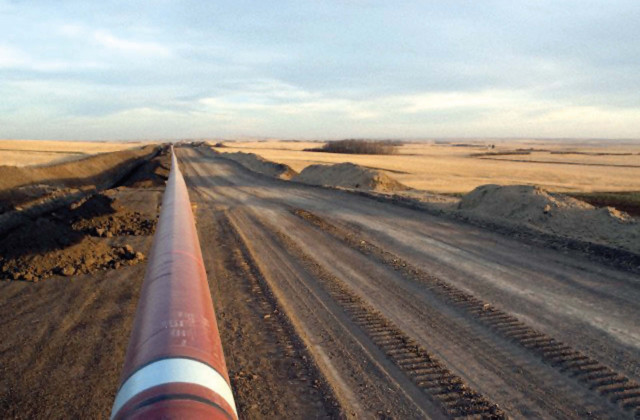Resolving the energy crisis: Pakistan to renegotiate IP gas pipeline deal
Potential savings of $100 billion over the next 25 years from TAPI and IP projects.

Pakistan has decided to re-negotiate $1.2 billion Iran-Pakistan (IP) gas pipeline deal with Iran under price mechanism settled under Turkmenistan-Afghanistan-Pakistan-India (TAPI) gas pipeline project.
“Pakistan will save $100 billion during the period of next 25 years due to two gas pipeline projects Iran-Pakistan (IP) and TAPI,” Petroleum Minister Dr Asim Hussain said while addressing a press conference here on Sunday.
The saving has been estimated by comparing the price of furnace oil with the price of gas imported from Iran and Turkmenistan. Imported gas will be utilised predominantly in the power sector which is currently using furnace oil.
“The contract of IP gas pipeline has the provision to re-negotiate the gas price if Pakistan is able to get alternative source of supply at cheaper rate,” Hussain told The Express Tribune adding that Pakistan and India will hold dialogue on the transit fee in December this year.
Pakistan has already signed Gas Sales Purchase Agreement (GSPA) with Iran by linking price of gas with 78 per cent of crude oil.
“In case of TAPI gas pipeline project, gas price will be linked with 70 per cent of crude oil,” Hussain said, adding that Pakistan has decided to renegotiate with Iran because of this.
Pakistan and Turkmenistan are scheduled to make an initial signing of the Gas Sales Purchase Agreement (GSPA) on the TAPI project during President Zardari’s two-day visit of Turkmenistan which starts today (Monday).
Dr Asim Hussain said that gas situation in the country will be normalised by the end of 2013. “gas shortage next year will be less critical as 500 million cubic feet per day (mmbtu) imported Liquefied Natural Gas (LNG) will enter the system from third quarter of next year.
“During current month gas shortfall is expected to be 529 million cubic feet per day (MMCFD), in December 911, January 1,127, February 1,046 and 762 mmcfd in March next year”, he said adding that the month of January is very critical. “That is why the government has decided to review the gas shortage on a monthly basis,” he said.
He said that the country would have an additional 200 mmcfd gas in system out of which 100 mmcfd gas will come from Kunner-Pasakhi, 60 mmcfd from Sui gas and Qaderpur gas field. Some gas discovery is also expected from small fields.
Under gas load management plan approved by the Economic Coordination Committee (ECC), Compressed Natural Gas (CNG) and industrial sector will face three days of gas loadshedding in a week.
“Gas supply to the fertiliser sector will be cut on a rotational basis,” he said adding that the fertiliser sector would decide the mechanism for this.
While replying to a question Dr Asim Hussain said that during the next four to six months smart meters will be installed in the commercial sector and that 1,100 such meters had already been installed in Sindh.
Published in The Express Tribune, November 14th, 2011.



















COMMENTS
Comments are moderated and generally will be posted if they are on-topic and not abusive.
For more information, please see our Comments FAQ